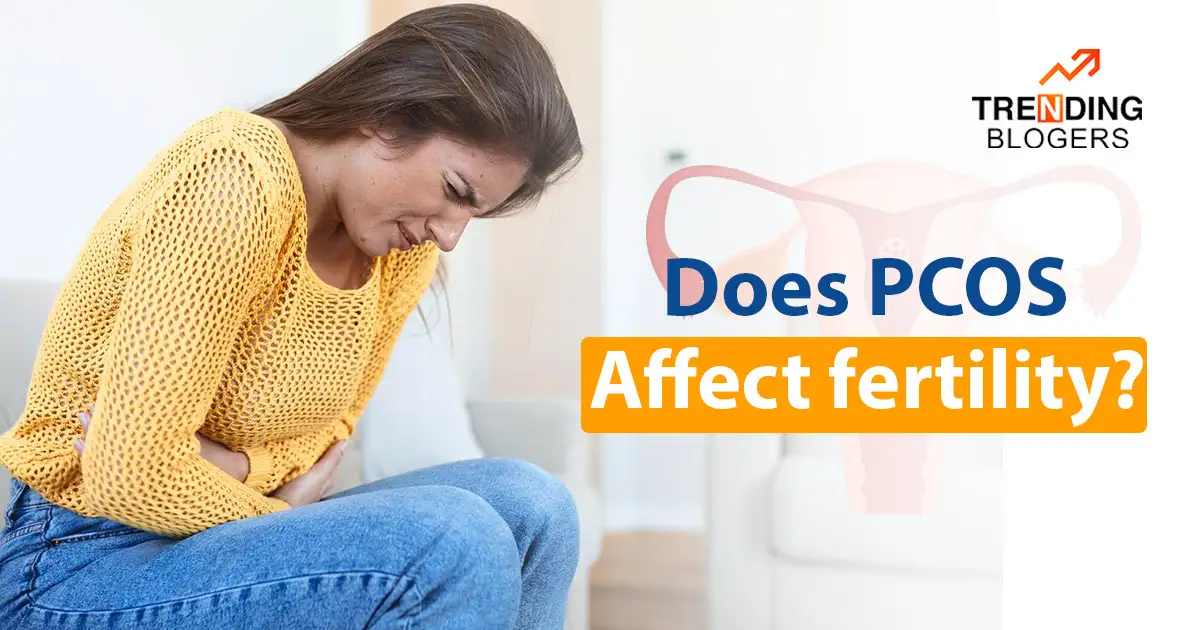PCOS (Polycystic Ovarian Syndrome) is among the most common medical conditions in women that is related to the reproductive organs. And most of the people wonder- is there any connection between Fertility and PCOS?
However, the answer to this question is not that simple. PCOS may or may not affect fertility, but if proper care and preventive measures are taken, women with PCOS can also have a normal pregnancy.
What is PCOS ( Polycystic Ovarian Syndrome )?
PCOS, or Polycystic Ovarian Syndrome, is a serious health condition that affects 1 in every 10 females. Experts believe that it is a genetic, hormonal, metabolic, and reproductive disorder.
Women often search about Fertility and PCOS. PCOS causes several serious health issues such as Type II Diabetes, hirsutism, irregular menstrual cycle, and it is one of the main causes of infertility in females.
How Does PCOS Affect Fertility?
Do you know around 70-80% of women with PCOS struggle with infertility? PCOS can lead to abnormalities in the ovaries, resulting in hormonal imbalances of sex hormones, i.e., testosterone and estrogen, leading to unregulated levels of these hormones. This abnormality can cause missed, frequent, or irregular periods.
The menstruation cycle, ovulation, cysts in the ovaries, and hormones all play an important role in Fertility and PCOS. Generally, one menstrual cycle takes about 29 days, but with PCOS, periods may come as soon as a week or as late as 60 days.
How does PCOS cause infertility?
PCOS can lead to enlarged ovaries, immature eggs, hormonal imbalance, and irregular ovulation. All these factors affect the reproductivity of women and can even lead to infertility. Around 90–95% of women seeking treatment for anovulatory infertility are diagnosed with PCOS.
Can Women With PCOS Get Pregnant?
No doubt, the infertility rate in women with PCOS is high, but thankfully, women with PCOS can get pregnant with some precaution, treatment, and medical help. To put the chances of getting pregnant with PCOS is difficult as every woman’s experience with PCOS may differ.
However, it is evident that women who are overweight or above the age of 35 have less chance of conceiving. Maintaining a healthy body weight, diet, and proper physical activity can help you with fertility and PCOS.
Diagnosis and Tests For Fertility and PCOS
There is no specific test to test and diagnose PCOS and infertility due to PCOS. To detect PCOS, doctors may perform various tests, including:
- Blood tests for hormone levels
- Blood tests for glucose level
- An ultrasound scan
If you are having difficulty conceiving and have been diagnosed with PCOS, you should consult a doctor and get proper treatment.
Fertility and PCOS Treatment
PCOS doesn’t have any sure-shot cure, but women with PCOS can get pregnant with various treatments. Though PCOS experience varies from woman to woman, so do the symptoms and treatment.
Here are some of the most common fertility and PCOS treatments used to increase the chance of pregnancy. However, do consult a doctor before using any of the below-mentioned treatments:-
- Birth control pills to regulate hormonal imbalances.
- Insulin-sensitizing drugs
- Ovulation indbody’s
- Medications like drug clomiphene citrate, metformin, gonadotropins
- Laparoscopic ovarian drilling (LOD) surgery
- In Vitro Fertilization (IVF)
- Physical activity and diet
Note:
A medical study has stated that approx 80% of women with PCOS condition when treated with the drug clomiphene citrate, have been shown to ovulate successfully. Most women with PCOS have approx 20 to 40 percent chance of conceiving with IVF treatment.
However, even after getting pregnant, PCOS can lead to several pregnancy complications such as gestational diabetes, premature delivery, and high blood pressure during pregnancy.
Here are some of the tips for increasing the chance of fertility in PCOS condition:-
- Weight control
- Managing stress
- Healthy Dietary habit
- Regular Exercise
FAQs
Ans. Yes, many women with PCOS conceive naturally. Lifestyle changes, a healthy diet, and medical support can improve fertility chances. Consulting a healthcare professional is advisable for personalized guidance.
Ans. A combination of aerobic exercises like brisk walking and strength training can be beneficial for PCOS, helping manage weight and improve insulin sensitivity.
Conclusion
Fertility and PCOS are a common concern in women. This is because PCOS is a medical health condition that can affect females of reproductive age, causing a variety of problems, including infertility and complications during pregnancy.
The answer to the question, “Does PCOS affect fertility?” is not as simple as it seems. PCOS may or “may not affect fertility as “the women’s experience with PCOS varies from woman to woman. Factors such as environmental, genetic, and chemical changes in the ovaries are responsible for PCOS. This condition disturbs the reproductive hormones, leading to infertility. That is why proper treatment and doctor’s advice are necessary for women struggling with infertility.
Also Read About: Symptoms of High Testosterone in Men and Women




